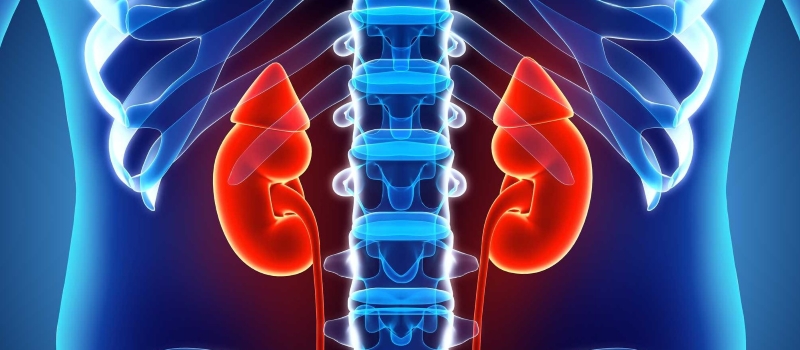What is Diabetic Nephropathy?
Diabetes is one of the diseases that can have a negative impact on the rest of the vital organs of the patient, the most important of which is the kidneys. Between 20% and 40% of diabetics suffer from diabetes mellitus, but what does kidney disease mean?
Your kidneys contain millions of tiny blood vessel clusters (glomeruli) that filter waste products from your blood. Severe damage to these blood vessels can lead to diabetic nephropathy, high blood pressure, decreased kidney function and kidney failure.
Causes of Diabetic Nephropathy
Diabetic nephropathy is a common complication of type 1 and type 2 diabetes.
Factors that can increase the risk of developing diabetic nephropathy include:
- Uncontrolled high blood sugar level.
- Uncontrolled high blood pressure.
- Being a smoker.
- High level of cholesterol in the blood.
- Obesity.
- Having a family history of diabetes.
When Should You Worry and Seek Doctor's Advice?
- Loss of control of blood pressure stability.
- Unexplained swelling in certain places such as the ankle, leg, hand and eye.
- Urgent and continuous need to urinate with a feeling of burning and pain with the exit of urine.
- Loss of ability to focus and get distracted easily.
- Breathing problems such as difficulty catching breath.
- The appearance of protein in the urine.
- Appetite and digestion disorders such as nausea and vomiting.
- Itching and the desire for constant itching (due to accumulation of toxins inside the body).
- Feeling exhausted and tired even without much effort.
- Pain in the back and in the kidney area.
- High body temperature and chills.
- A change in the characteristics of urine, whether in terms of shape or smell.
How Can you Avoid Reaching Advanced Stages of Diabetic Nephropathy?
Early treatment and maintenance of diabetes medication without neglecting it, and maintaining a normal sugar level through medication (if you are struggling to control your sugar, do not hesitate to seek advice from your doctor at Capital).
- Control of high blood pressure.
- Avoid taking any medications without complying with their medical standards, such as pain relievers that damage the kidneys.
- Reduce weight and exercise.
- Stop smoking.
- Reducing blood cholesterol.
- Commitment to a diet that contains appropriate proportions - according to your condition - of protein, sodium and potassium.
- Carry out periodic examinations, especially for people with diabetes, to reduce the causes of diabetic kidney disease from its inception. In Capital Home Care, our doctors follow up diabetic patients and request periodic examinations continuously to avoid complications.
Requesting Capital Home Care Services in Saudi Arabia
Capital Home Care has simplified the process of requesting their home care services in Jeddah, Saudi Arabia:
- Phone: Reach out to Capital Home Care directly at +966 12 227 6270 (Office) or +966 9200 10 689 (Toll-Free)
- Website: You can submit a request by clicking HERE
- Email: Send an email detailing your needs to info@capitalambulance.sa
- Visit in Branch: Alternatively, you can also visit Capital Home Care's office at 7846 Hira - 2488 An Nahda District - Jeddah, Saudi Arabia. Office hours are from 9:00 AM to 5:00 PM, Saturday through Thursday.
Once your request is received, a member of the Capital Home Care team will conduct an initial consultation to determine the specific needs of the patient. Following a comprehensive assessment, a tailored care plan is designed and implemented, ensuring the highest standard of home healthcare delivery.
References
https://www.mayoclinic.org/ar/diseases-conditions/diabetic-nephropathy



